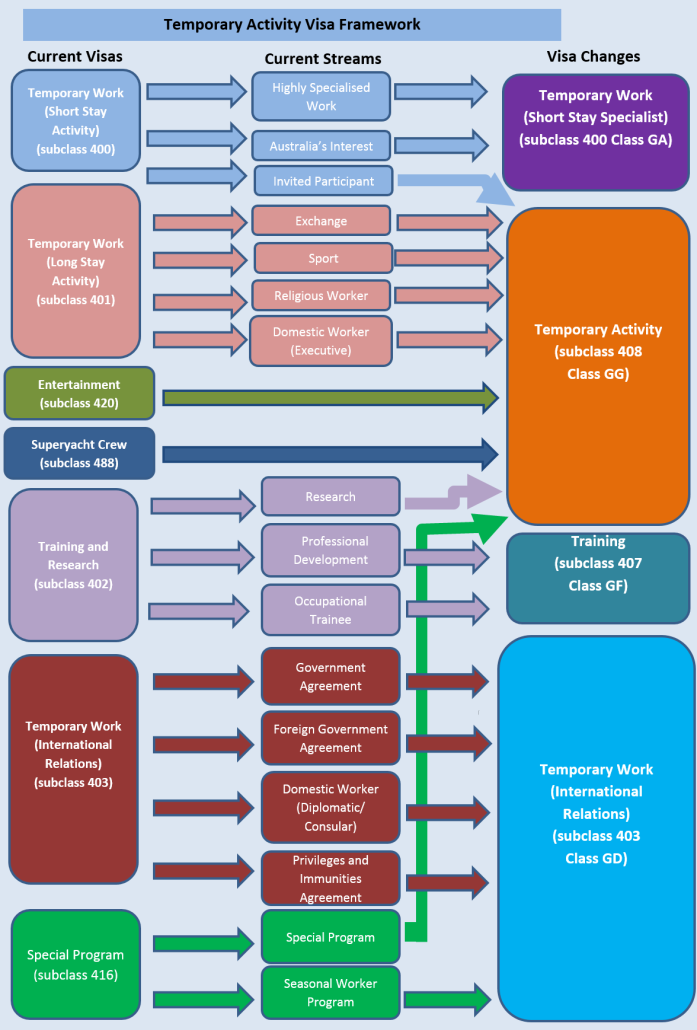Back in June, FCB Smart Visa reported on the ALP’s pre-election immigration policy platform concerning work-related visas. The recent political upset in the U.S. has given Bill Shorten (amongst others) new political impetus in bringing immigration squarely back on to the agenda.
At last week’s Migration Institute of Australia National Conference, Shadow immigration spokesman – Shayne Neumann MP – reiterated his party’s commitment to an ‘Australia first’ policy and the use of labour market testing (LMT) to protect Australian jobs from overseas workers (at any given time, there are around 1.4 million temporary residents with some form of work rights in Australia). Nobody would deny the political and economic significance of strong workforce participation, but the ALP’s LMT proposition appears to be mere political rhetoric, and the value of a new labour market testing regime is highly questionable on account of the following:
- Labour market testing for 457 visa applications is only relevant to around 3% of temporary visas carrying work rights in Australia
- It already exists for the majority of trade occupations, nursing occupations and engineering roles. The irony is that these are amongst the very occupations that have been cited by the ALP as jobs in need of protection through LMT
- It already exists by proxy for every occupation through the ‘market salary’ requirement – a test of the labour market to ascertain the appropriate salary to be paid to the primary visa holder
- It already exists by stealth for every occupation through the ‘genuine position’ requirement
- Unless case officers are required to sift through, and draw subjective conclusions from responses to job ads, it will be a futile exercise
- And if case officers are required to sift through, and draw subjective conclusions from responses to LMT efforts, it will be an unworkable, and extremely resource intensive exercise
- The overwhelming majority of industry and employer groups oppose it, the most recent Independent review of the 457 visa program recommended against it, and the OECD found it unreliable for such purposes
- Many will recall that universal LMT is effectively a ‘back to the future’ policy having been abolished over 10 years ago (until the qualified re-introduction of the current LMT regime in 2013)
Canary in the coal mine
There is a distinct correlation between the volume of 457 visas sought, and Australia’s unemployment rate. Over the years, the writer has observed a substantial upswing of 457 visa work when national unemployment dips below 5%. With a current seasonally adjusted unemployment rate of 5.8% and the lowest number of 457 visa grants in 7 years, this correlation appears to be intact, and is testament to the effectiveness of a demand-driven program. The proposed adjustments are therefore unnecessary and seemingly contemptuous of Australian business’ needs.
Australia’s focal shift from primary and extractive industries to STEM-based economic outputs will require the input and skill of the world’s contemporary leaders in the field. This can be achieved via collaborative research and other initiatives, but the international labour market is the most significant and obvious conduit to meeting skill shortages in this area. Atlassian has been particularly vocal in citing the 457 visa program as a key determinant in its ability to operate a base in Australia. With approximately 200 staff holding 457 visas, Atlassian is unashamedly a ‘power user’ of the program. However the real story here is the 700 additional Australian employees who have a career in a strategic growth industry because of the 457 program; the significance of which rarely makes its way into populist political discourse.
There are any number of home-grown innovators in Atlassian’s position who plan to remain in Australia with the support of talent supplemented from overseas. It is self-defeating for any business-friendly government to hamper access to this pool of expertise whilst baying for Australian business to be globally competitive in these industries in real time.
More than one solution
If the government and opposition want to weed out opportunistic sponsors, a more workable solution would be to simply shift the major cost base to the sponsor. At present, the lodgement fees that must be borne by an existing business sponsor to nominate a 457 visa holder is $330 (or $750 for a first-time sponsor). By contrast, unless the sponsoring business elects to pay for tor the visa charges on behalf of applicants (as many do), a family of four needs to pay a minimum of $2,650 in visa lodgement fees. A premium on the Nomination stage would arguably ‘separate the wheat from the chaff’ without affecting sponsors doing the right thing. At a minimum, this would be a fair exchange for an onerous and ineffectual universal LMT regime.
It is time to ditch the political bombast in favour of pragmatic solutions, and to prioritise the passage of the key recommendations made by the extensive independent review into this economically vital visa program.
Alex Kaufman
FCB Smart Visa


